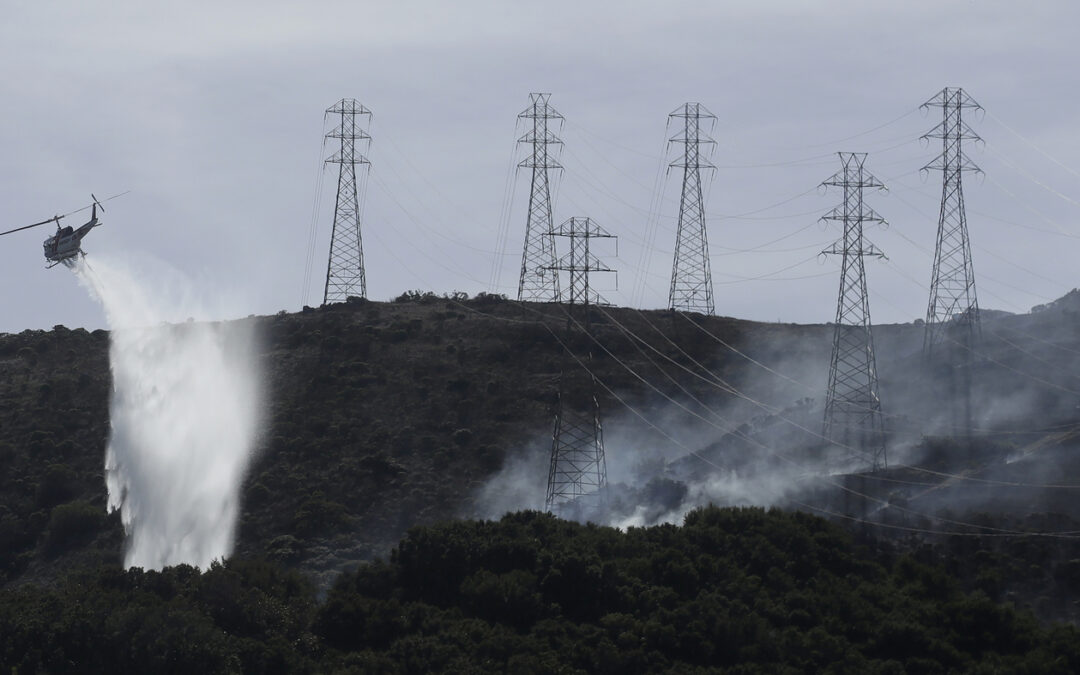- Using high-quality pin insulators help in protecting the power infrastructure from wildfires. They also help prevent the occurrence of spark production from the power equipment.
- The recent wildfires in Colombia have significant impacts on power generation, transmission, and consumption.
Colombia has had sweeping wildfires that spread across the border, burning segments of land in Ecuador, Peru, and Brazil. These wildfires are mostly driven by the increased drought in the country. Other factors relate to factors like climate, land use, and human activity. Additionally, the risk is heightened by rising global temperatures and ongoing deforestation. Governments across the region have put in place programmed power outages due to the sudden increase in pressure in their hydroelectric capabilities. Hydropower generates about 70% of Colombian electricity. Wildfires in Colombia have an impact on power generation, transmission, and consumption in the country. Also, high-quality pin insulators protect power equipment from wildfires. This is by providing electrical insulation between the conductor and the support structure.
Pin insulators are from non-conductive materials such as porcelain or glass. These materials prevent the flow of electricity. It is then attached to a supporting structure, which may be exposed to wildfires in Colombia. In case of contact with a fire-damaged supporting structure, the insulator can help prevent electrical arcing. It can also help isolate the faulty section and prevent the fire from spreading. To mitigate the wildfire impacts, Colombia needs to diversify energy sources, strengthen infrastructure, and use AI for wildfire monitoring. This can help power companies take preventive measures to reduce the risk of fire-related disruptions to the grid. This article will look at the impacts of wildfires on power generation transmission, and consumption. We will also look at how pin insulators may help protect power equipment in case of wildfires.
Impacts of wildfires on power generation, transmission, and consumption in Colombia
Wildfires in Colombia have a significant impact on power generation, transmission, and consumption. This is especially since the country depends on hydropower for energy production. To address these challenges, Colombia needs strategic planning, investment in resilient infrastructure, and a commitment to energy diversification. Additionally, use of fire-resistant pin insulators can help to withstand high temperatures. They also are less likely to ignite in a wildfire. Wildfires disrupt hydropower and thermal power plants, damage transmission infrastructure, and contribute to widespread power outages. The following are the impacts of wildfires on power generation, transmission, and consumption.
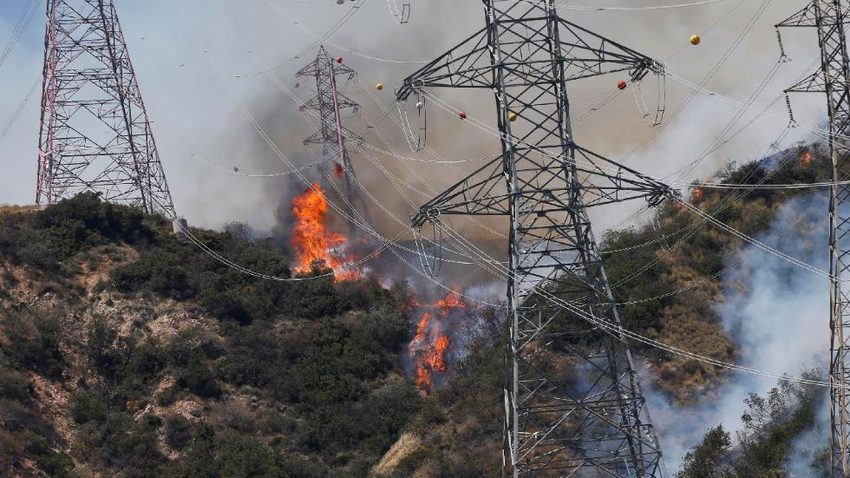
- Impact on power generation – wildfires impact hydropower by increasing soil erosion. This soil ends up in rivers and reservoirs. The siltation reduces the capacity of reservoirs and disrupts water flow. Reduced water levels during the wildfire season impact power output. This limits electricity generation capacity. Also, wildfires pose challenges for thermal power plants due to high temperatures and increased dust in the air.
- Impact on power transmission – fires spread into areas where transmission lines are, which can cause severe damage. This can lead to disruptions in electricity supply to urban and rural areas. This leads to power shutdowns to prevent electrical faults that could ignite more fires. Wildfires can make it difficult for maintenance crews to reach transmission lines and substations for repair and maintenance. Composite pin insulators offer excellent fire resistance and are able to meet specific environmental and load requirements.
- Impact on power consumption – damage to transmission lines leads to power outages, which affect businesses and industries. The hot and dry conditions lead to increased energy consumption as people turn to cooling systems. The increased demand and low supply capacity can put stress on the grid, leading to electricity rationing.
Functions of pin insulators in protecting power infrastructure during wildfires
Pin insulators protect the power infrastructure during wildfires to help maintain electrical integrity. They also help in reducing the risk of damage or failure of power lines. Pin insulators provide electrical insulation, prevent arcing, maintain the mechanical stability of conductors, and withstand extreme temperatures. They also reduce power outages and prevent power lines from generating fire sparks during wildfire events. Here’s how pin insulators contribute to power infrastructure safety in wildfires.
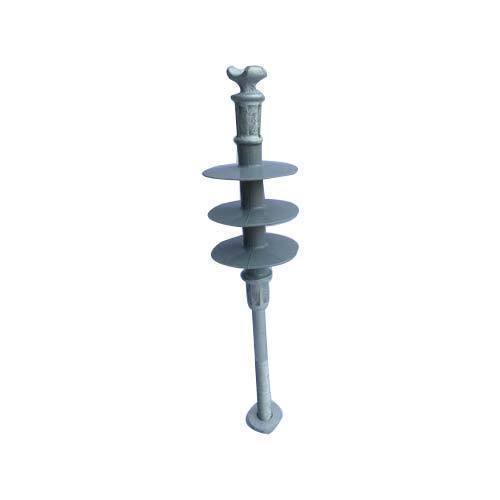
- Insulating electrical conductors from poles – pin insulators have designs to keep electrical conductors isolated from the support poles. The insulating properties of the pin insulators ensure the conductors remain isolated to reduce the risk of electrical arcing. High-quality pin insulators are from materials like ceramic, glass, or composite polymers.
- Reducing the risk of arcing – particles of smoke, ash, or dust in the air can increase the conductivity of the atmosphere. Pin insulators help prevent arcing by keeping the conductors properly insulated and elevated. They also protect the power grid from short circuits that could result in widespread outages.
- Reducing line failure and system disruptions – pin insulators provide mechanical support to ensure the conductors stay in place. Pin insulators from durable materials help maintain the structural stability of power lines and reduce the risk of breaking.
- Limiting wildfire spread – electrical faults from power lines can ignite new fires during wildfires. Pin insulators prevent electrical faults, which reduces the risk of fire ignitions from power lines.
- Compatibility with fire-resistant poles – pin insulators function along fire-resistant poles. These poles are mostly made from concrete or composite fiberglass. The combination provides enhanced protection to the power infrastructure during wildfires.
Wildfire contribution to power outages in Colombia
Wildfires in Colombia lead to power outages through several factors, including impacts on power infrastructure. The effects of grid instability and increased power demand during dry seasons intensify the risk of outages. This highlights the need for enhanced fire prevention, improved infrastructure resilience, and better emergency response strategies. Pin insulators prevent electrical faults and maintain insulation between the conductors and grounded structures. This helps to reduce the risk of power lines becoming a source of secondary ignitions. The following are the key ways in which wildfires contribute to power disruptions in Colombia.
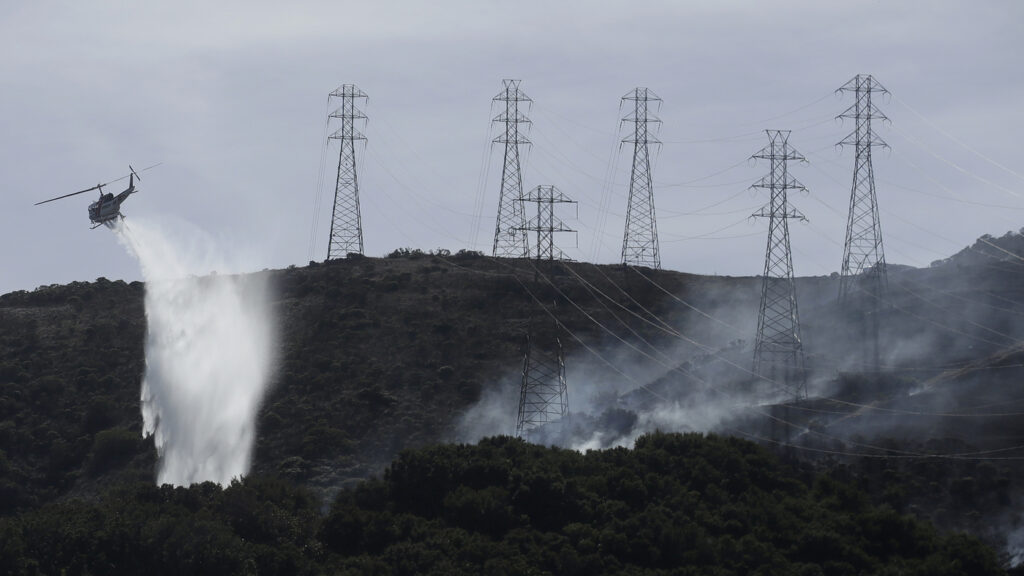
- Damage to power transmission lines – the heat from fires can destroy power cables, transformers, and support structures. The damaged lines lead to outages across large areas. Burning and falling vegetation making contact with power lines leads to shorts and faults in the electrical system. This can create instability in the grid, leading to outages.
- Preventive shutdowns – utility companies may shut down power lines to prevent electrical sparks from lighting fires. This helps to reduce the risk of transmission lines starting fires and cutting off electricity to some regions. Shutting down power also helps to protect utility workers and emergency responders from electric shocks during firefighting operations.
- Restricted access for maintenance and repair – damaged infrastructure and blocked roads can delay the restoration of damaged power lines. The restoration of power infrastructure needs thorough inspections and repairs, which may take some time. Pin insulators also provide mechanical support, ensuring that the conductors stay in place on poles.
- Grid instability – increased electricity consumption due to air conditionin needs lead to overloading. This can lead to grid instability or cascading failures causing widespread outages. Damage to substations can result in a loss of control over power distribution, leading to outages.
Mitigation strategies for wildfires using pin insulators in Colombia
Colombia can use high-quality pin insulators in their mitigation strategies to enhance the resilience of power infrastructure. Effective strategies include material improvements, better design practices, and integration with broader wildfire prevention and response measures. The measures may also include the use of heat-resistant materials, increasing insulation clearance, and maintaining fire-resistant poles. By using these measures, Colombia can enhance the resilience of its power infrastructure in wildfire-prone areas. The following are the mitigation strategies involving pin insulators to manage the impacts of wildfires.
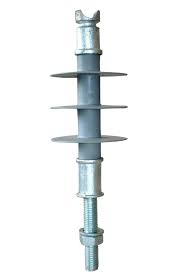
- Using heat-resistant insulators – these pin insulators can help withstand high temperatures. They are also lightweight, which makes them easier to install and less likely to collapse under mechanical stress.
- Increasing insulation clearance – the greater distance between the conductor and the grounded structure lowers the risk of flashovers. This helps to reduce the chances of a fire spreading due to electrical faults. Using long pin insulators increases the air gap between the power conductor and the pole.
- Regular maintenance and inspections – routine inspections help to ensure pin insulators remain effective under extreme conditions. It is important to clean the pin insulators to remove contaminants and avid conductive paths that could lead to arcing.
- Installation of fire-resistant poles – to maximize the effectiveness of pin insulators, they should pair with fire-resistant poles. This combination creates a more robust defense against wildfires.
- Warning systems and automated shutoff – incorporating sensors that detect heat or smoke allows for automated responses. Use of pin insulators and smart sensors ensures that power lines remain insulated until a safe shutdown is initiated.
In conclusion,
Wildfires pose risks to Colombia’s power infrastructure, which impacts power generation, transmission, and consumption. Mitigating these challenges requires strategic use of pin insulators to leverage their heat-resistant materials. Additionally, regular inspections, smart grid integration, and automated responses are important to maintaining infrastructure integrity during wildfires. By using these measures, Colombia can enhance grid resilience, protect power infrastructure, and ensure a more reliable energy supply.
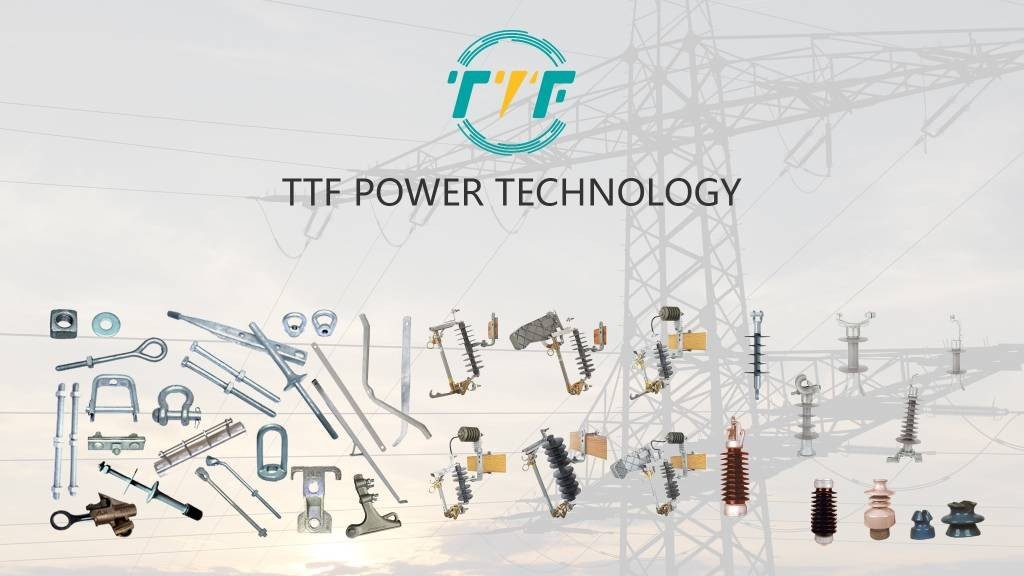
At TTF power systems, we play a crucial role in maintaining the safety and security of power infrastructure during wildfires. This is through our high-quality pin insulators that protect power equipment. Additionally, we are a one-stop-shop for utility pole hardware fittings, transmission line accessories, and power line construction equipment. We provide our customers with the most extensive range of products in the industry, excellentvalue, and knowledgeable service. Reach out to us for all your electrical insulator needs through the information below.

